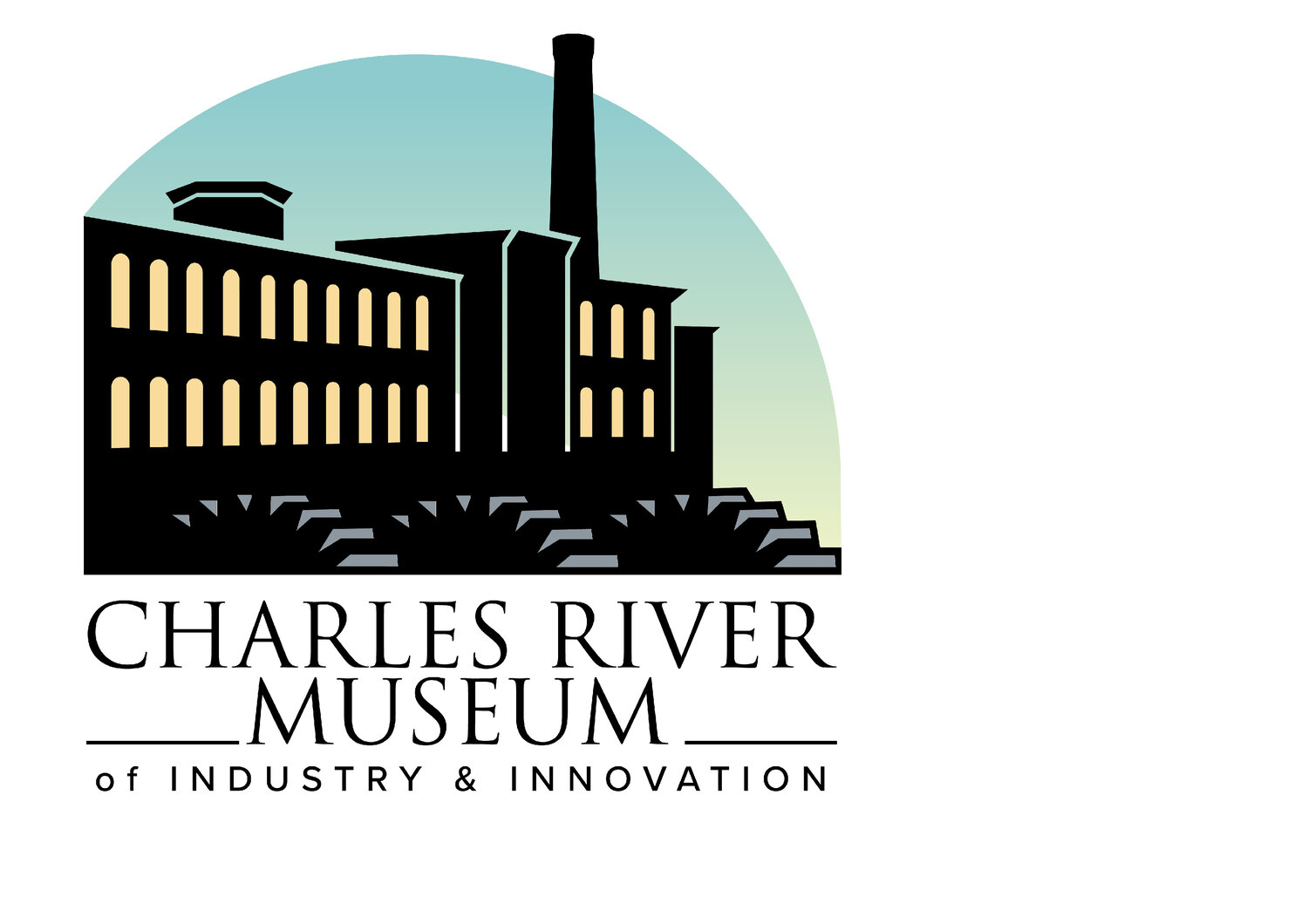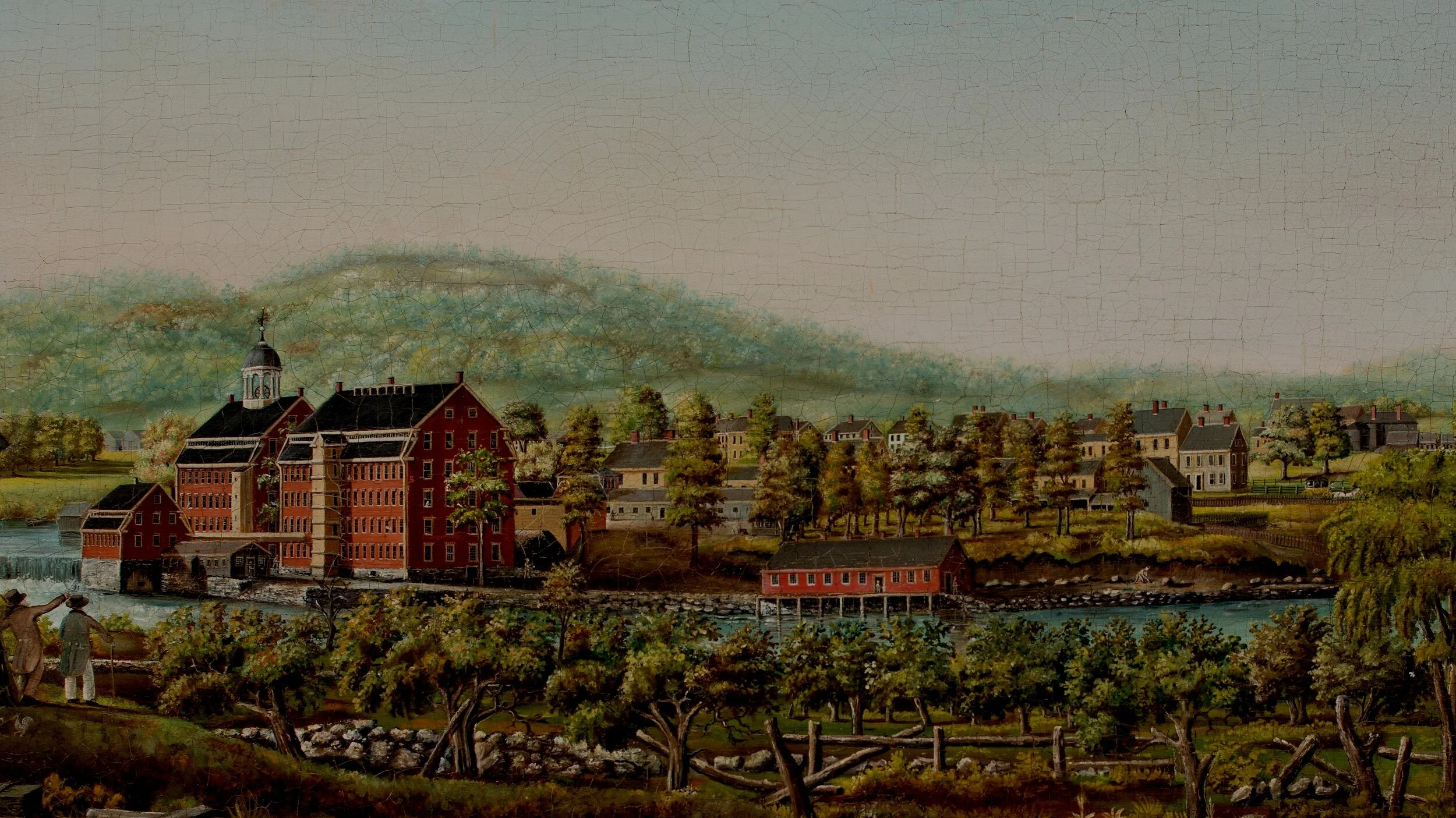Francis Cabot Lowell and
the Boston Manufacturing Company
Waltham’s Manufacturing Revolution: (1813-1820s)
By Amy Green, Ph.D., Charles River Museum historian
Banner image photographed by David Bohl, courtesy Gore Place
Francis Cabot Lowell (1775-1817), son of John Lowell (distinguished jurist and delegate to the Continental Congress) inherited the mantle of the Lowell-Cabot dynasty, like so many of his siblings and cousins. Born into Boston Brahmin’s elite, he was destined for Phillips Academy and Harvard University. Yet, Francis Cabot Lowell was rather ordinary amongst his peers, a successful overseas merchant, trading in silks and teas from China and hand-made textiles from India (1798-1808). Not until he envisioned and then built a factory that mass produced textiles for a home market did he distinguish himself, and hence make famous the name, Francis Cabot Lowell.
Several factors led him to leave India Wharf, a joint endeavor, built to house his increasingly lucrative trade imports with Asia. Jefferson’s embargo of 1807 hampered trade with Europe and Asia. While hoping to coerce England and France to respect the neutrality of the United States during the Napoleonic wars, his embargo was widely unpopular, bringing trade to a halt. Lowell also saw a future for manufacture in America; only domestic production would truly release America from Britain’s control. The British Empire hoped to suppress our economic growth by continuing to control the production and supply of finished goods.[1]
Lastly, Lowell witnessed the success of early manufacture in New England, especially the mechanized production of cotton thread at the Slater Mill in Rhode Island. Established in 1793, Slater built the first successful cotton-spinning factory in the United States, an important part of the industrial revolution.[2] The Industrial Revolution did not start in any one place or on any specific date; it was an uneven process and the Slater mills were part of the journey towards manufacturing giants like Carnegie and his steel empire in the 1890s.
What makes Francis Cabot Lowell and his Boston Manufacturing Company unique?
The invention of the modern factory system.
This was his conception alone, something that departed from how business was done here and in Europe. Perhaps because he was an outsider when it came to manufacture and mechanics, he saw beyond the mill as the mainstay of production (mills produced only one part of the production process) and could envision something more multifaceted. It took imagination to think in terms of a fully integrated and centralized process for the making of textiles. While not the start of the Industrial Revolution, Lowell’s Boston Manufacturing Company in Waltham moved the Industrial Revolution significantly forward, as this paper will discuss. To examine this process, I will look at many factors, from modern financing to water power, from protective tariffs to the labor force, that facilitated the growth of the factory system.



